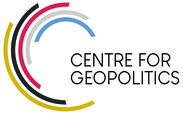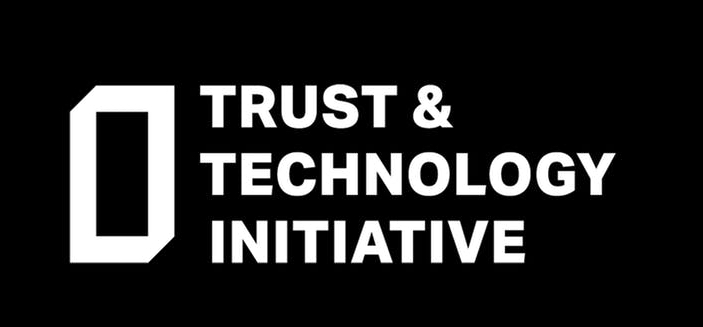Democracy in the Time of the Internet
The following talks and panel discussions represent a selection of events hosted at the University of Cambridge that concerned themselves with changes to democratic institutions and processes their consequences for social cohesion, brought about by increased digitisation.
The Age of Surveillance Capitalism
Professor Shoshana Zuboff
The Trust & Technology Initiative hosted a talk by Shoshana Zuboff (Harvard University) in conjunction with the launch of her new book The Age of Surveillance Capitalism:
Society is at a turning point. The heady optimism that accompanied the advent of the Internet is gone, replaced by a deep unease. Technologies that were meant to liberate us have exacerbated social inequalities and stoked explosive political climates across the world. Tech companies gather our information online and sell it to the highest bidder, whether government or retailer. In this world of surveillance capitalism, profit depends not only on predicting our behaviour but modifying it too.
The Age of Surveillance Capitalism is a deeply-reasoned examination of the threat of unprecedented power free from democratic oversight. As it explores this new capitalism’s impact on society, politics, business, and technology, it exposes the fundamental struggles that will decide both the next chapter of capitalism and the meaning of information civilization. Most critically, it shows how we can protect ourselves and our communities ensuring we are the masters of the digital rather than its slaves.
Shoshana Zuboff has been called ‘the true prophet of the information age’ by the Financial Times for her ground-breaking book, In the Age of the Smart Machine. She is the Charles Edward Wilson Professor Emerita at Harvard Business School as well as Faculty Associate at the Berkman Center for Internet and Society at Harvard Law School.
Digital Exclusion: A Politics of Refusal for a Data-Driven Era
Seeta Peña Gangadharan, Media and Communications, LSE
Over the past few decades, the term “digital exclusion” has been linked to debates about access to internet infrastructures, adoption of internet-enabled technologies, and conditions of social and economic marginalization and historic forms of oppression. More recently, considerations of privacy and surveillance as well as political economic factors impacting processes of social and economic marginalization are adding to these debates. Taken together, these exclusionary problems amount to what Iris Marion Young (2002) referred to as “plausible structural story” (p. 15) of the disadvantage faced by marginalized communities when choosing to use or engage with technology.
But do these harmful accounts of exclusion obscure the agentic possibilities of self-exclusion in technologically mediated society? In this presentation, Seeta reevaluated the idea of digital exclusion as a form of refusal of technologies’ seemingly inevitable uses and ends. Refusal does not mean anti-technology or imply wholesale rejection of digital devices, internet infrastructures, or internet-based technologies. Instead, grounding the discussion in postcolonial and feminist political theories and in field research focused on Our Data Bodies, she argues that a politics of refusal represents an affirmative take on exclusion. Refusal demands a critical analysis of historically negligent or harmful technology policies, practices, and institutions as a means for individuals and groups, especially members of historically marginalized groups—to collectively self-determine a technologically mediated world in which they wish to belong.
Digital Democracy: All in this together?
The speakers illustrated some of the political, economic and social power asymmetries and barriers to inclusion that have already sprung up with increasing digitisation of our lives.
Sally's talk brought home that a signifikant - and growing - part of the UK population is effectively barred from digital participation. With the demographics of an aging population (the Office of National Statistics shows 5.4 m people aged 75+, 12 m 65+ for the year 2018) comes an increase in cognitive and motor skill challenges, currently still boosted by the late entry to digital technology of older UK residents. As it is becoming increasingly difficult to exercise civic rights offline - many council services, for instance, can only be applied for digitally; stakeholder consultation in transport and construction projects are now digital by default - this has severe repercussions for democratic representation of citizens' concerns.
John focussed on the skewed perception of opinions held by voters that can result from a narrow dagital media database. The Brexit referendum result which took many politicians and journalists by surprise is a prime example of how the self-contained sphere of digitally uttered opinions was mistaken for 'the voice of the nation', when it was only a partial snapshot of public opinion.
Conspiracy and Democracy Project: History, Political Theory and the Internet
The five-year Leverhulme Trust-funded project Conspiracy and Democracy, led by Professor Sir Richard Evans, Professor John Naughton, and Professor David Runciman, asked big questions of a big topic at a time when discourses around conspiracy and democracy have become mainstream. Theories and beliefs about conspiracies are an enduring feature of modern societies. This is partly a reflection of the fact that real conspiracies do exist, and have existed in the past. But the pervasiveness of conspiracy theories in the twenty-first century suggests that many other factors are also at work, and studying them provides opportunities for understanding how people make sense of the world and how societies function. What does the prevalence of conspiracy theories tell us about trust in democratic societies, and about the differences between cultures and societies? The Conspiracy and Democracy Project ran a seminar highlighting some of the answers to these questions, explored trends in contemporary conspiracy theories, and launched the results of a new poll conducted by YouGov. Bringing together researchers who have worked project, the event showcased research findings and outputs while giving an opportunity for discussion and exploring next steps.
Digital Government: The New Global Alliance?
The Digital State Project at the Bennett Institute for Public Policy hosted a panel discussion exploring the promises and perils of international collaboration in digital government as digitisation rises to prominence as a policy concern for governments globally.
What circumstances provide the conditions for these new forms of international policy and technology collaboration? Is digital government really a more politically 'neutral' and globally replicable policy area than others, as some digital practitioners suggest? And what is at stake in the creation of a set of digital products and ethics across borders? Join our expert panel as they set out to address these topics.
Panelists included:
Robyn Scott, CEO, Apolitical
Tom Loosemore, Partner, Public Digital and co-founder, UK Government Digital Service (GDS)
Harry Lund, Deputy Director of Digital Charter, UK Department for Digital, Culture, Media & Sport (DCMS)
Technology and Democracy: Nightmares
The Cambridge Forum on Geopolitics held an event focusing on Technology and Democracy as part of its Nightmare Lectures 2019 series. From corporate surveillance to allegations of election hacking, the ever-evolving technological landscape continues to have profound impacts on politics and beyond. Panelists Big Brother Watch's Silkie Carlo, the Director of the University of London's Information Law and Policy Centre, Dr Nóra Ni Loideain, the University of Cambridge's Prof John Naughton and Prof David Runciman shared their personal nightmares on the effects technology could have on the functioning of contemporary democracy.
Public Sphere in the Age of the Algorithm
In recent years the internet has become a key battleground for electoral politics. Dr Jennifer Cobbe (Depertment of Computer Science and Technology) examined how surveillance capitalism and the increasingly algorithmic nature of online public space allows the public sphere and the democratic process to be manipulated by microtargeted political advertising, disinformation, and political bots. This talk formed part of the 2019 Cambridge Science Festival.
The (Political and Financial) Economics of Transformational Technology
Talk by William H Janeway at Wolfson College
Over the past 250 years, the world has been repeatedly reconstructed by successive transformational technologies, as what were once experiments at the frontier become the ocean in which we swim. Frontier experiments necessarily proceed by trial and error and error and error. Consequently, the investments that have proved transformational have required funding from sources not concerned with immediately visible economic value: a mission-driven state and financial speculation. These have been the complementary engines of: upstream scientific discovery and technical invention; deployment of innovative networks, from canals and railroads, through electricity grids and highways, to the internet; and quasi-Darwinian emergence of novel applications in the new economic space thereby created.
Now we are experiencing the disruptive maturation of the latest technological transformation, the Digital Revolution. Like previous ones, the Digital Revolution has been shifting the distribution of power within and across economic and political and social domains. In the west, it has matured to challenge the authority of the state at multiple levels and even undermined the integrity of the political process on which that authority ultimately rests, inevitably motivating a range of problematically effective counter-movements. At the same time, in China it is enabling an alternative to representative democracy as the counter-weight to market capitalism: the “benevolent surveillance state.” Globally, the structures of political and social institutions are as much in play as are the competitive conditions of markets.




